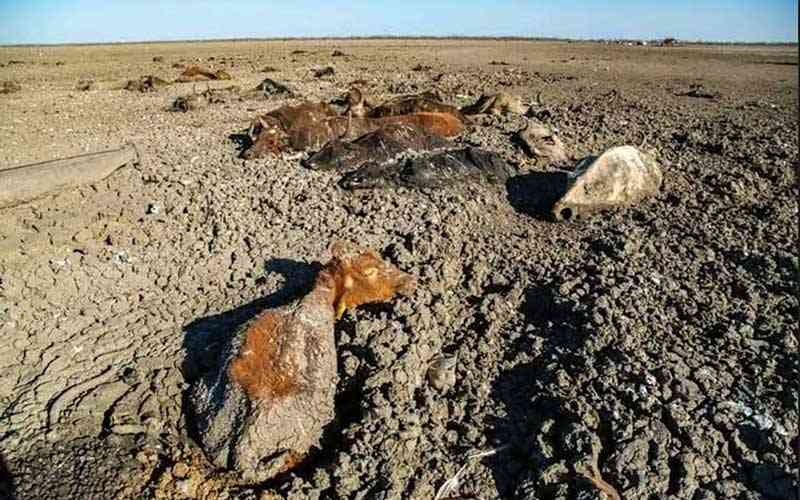
FARMERS in Matabeleland South are losing livestock, especially cattle, due to lack of pastures and water as the province begins to feel the effects of climate change.
The lack of pastures has largely been a result of poor rains recorded in the last rainy season.
Weather experts have warned that Zimbabwe and other countries on the African continent will this summer season experience an El Nino-induced dry spell.
Already, the country is experiencing late rains while the heatwave has been punishing.
All indications point to serious drought set to ravage the country and farmers in livestock-rich Matabeleland are already counting their losses as animals die from thirst and lack of food.
In Matabeleland South, Matobo district has emerged as the driest area where cattle are dying in numbers.
Matabeleland South provincial veterinary officer Enat Mdlongwa confirmed the decimation of herds in the province as of September this year.
"So far 91 cattle have died from starvation with some being trapped in mud while searching for water in drying water ponds and dams since September," Mdlongwa said.
- 3,7m queue for govt food aid
- A critical analysis of govt’s economic stability measures
- Forthcoming agric season: Farmers must tighten belts
- El Nino: Spare a thought for rural poor
Keep Reading
“The most affected wards were 1, 2, 3, 4, 8, 15,16,17,18,23,24 and 25 in Matobo.”
“Most dams are now muddy and cattle are being trapped in there while looking for water.
“Farmers are giving supplementary feed to improve the condition of cattle.”
Matabeleland South acting Agritex officer Mkhunjulelwa Ndlovu said they were still gathering statistics on cattle deaths.
“However, the situation is bad and threatens the economic assets in the province,” Ndlovu said.
“The majority of season dams are drying up in Gwanda, Matobo, Mangwe, Bulilima and also Beitbridge and animals are facing serious water challenges in these areas.”
Ndlovu said farmers couldn't buy supplements in the form of salt blocks, concentrates, mixed meals with roughage from stockfeed companies to save their livestock from drought.
However, cattle are dying because cash-strapped farmers cannot afford to buy the supplementary feed their animals need.
With this season appearing to be heading for another drought, farmers fear for the worst.
A cattle farmer in Esigodini Raphael Khumalo said the situation was dire.
"We lost grazing land as early as June and now that the rains have delayed we expect to lose young calves as cows do not have milk,” Khumalo said.
“Our cattle rely largely on streams that supply the Ncema river.
“However, these are under strain due to the A1 resettlement that has encroached on our water sources.”
Khumalo added: “Of concern is the unlimited number of cattle some of these settlers keep, which have no bearing on the carrying capacity of the land they are allocated and water sources”
Khumalo said illegal miners too were piling misery by stealing their livestock.
"We have also lost cattle through the actions of alluvial gold miners, who leave open pits where our cattle fall into, plastic litter that chokes the cattle and they use mercury and other chemicals that are poisonous,” he said.
Matabeleland South-based Kirton Farmers Association chairperson Moketsi Basuthu echoed the same sentiments.
“Boreholes in Kirton area are on granite underock, which doesn't hold water well, and this has worsened the situation,” Basuthu said.
Umzingwane legislator Levi Mayihlome said: "With the present dry conditions and late rains, cattle deaths will be inevitable, especially in arid regions like Matabeleland.”
Chief Mathema of Gwanda pleaded with government to provide subsidised stockfeed for communal farmers in dry places like Matabeleland South.
The country has lost livestock in the past due to drought. During 2019 and 2020, the nation lost an estimated total of 30,000 cows. Indications are that Matabeleland South was the hardest hit, with more than 4,500 cows dying of thirst in 2019 alone.
In Masvingo Province the death toll exceeded 4,000 in 2019.
Midlands Province recorded over 2,040 cattle deaths in the same year, according to government data. Diseases have not spared the national herd with Theileriosis claiming huge herds also most every year.






